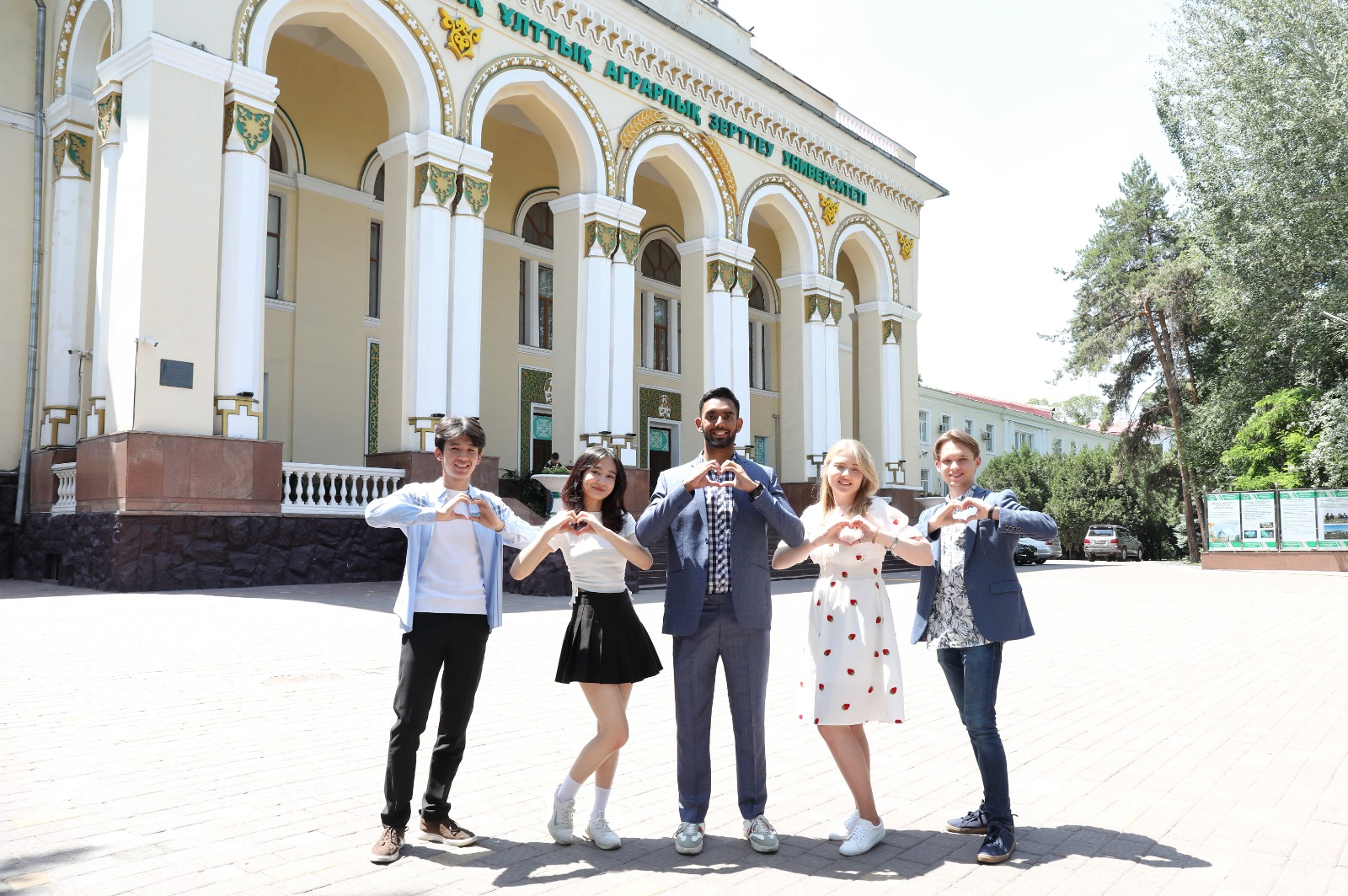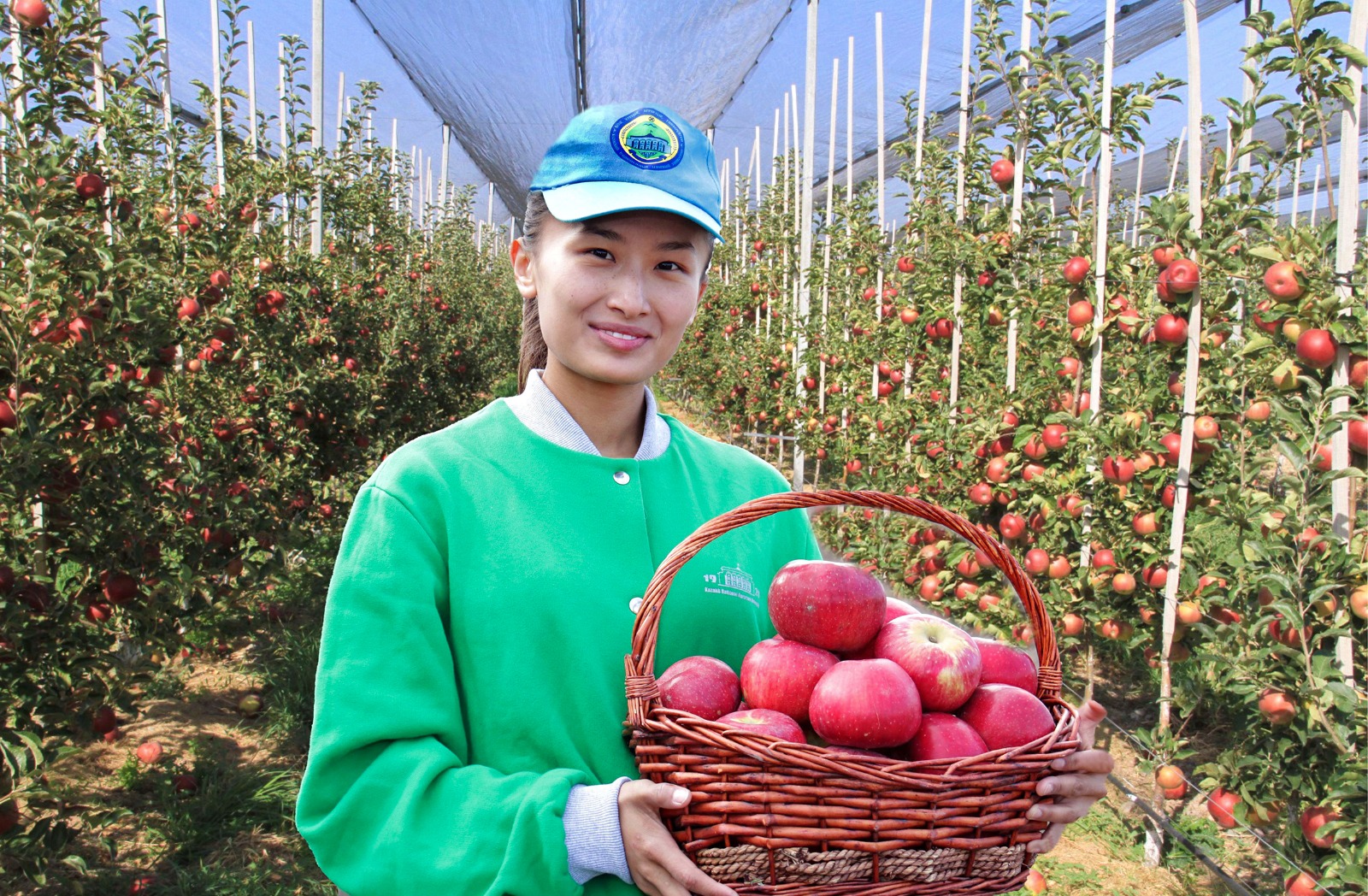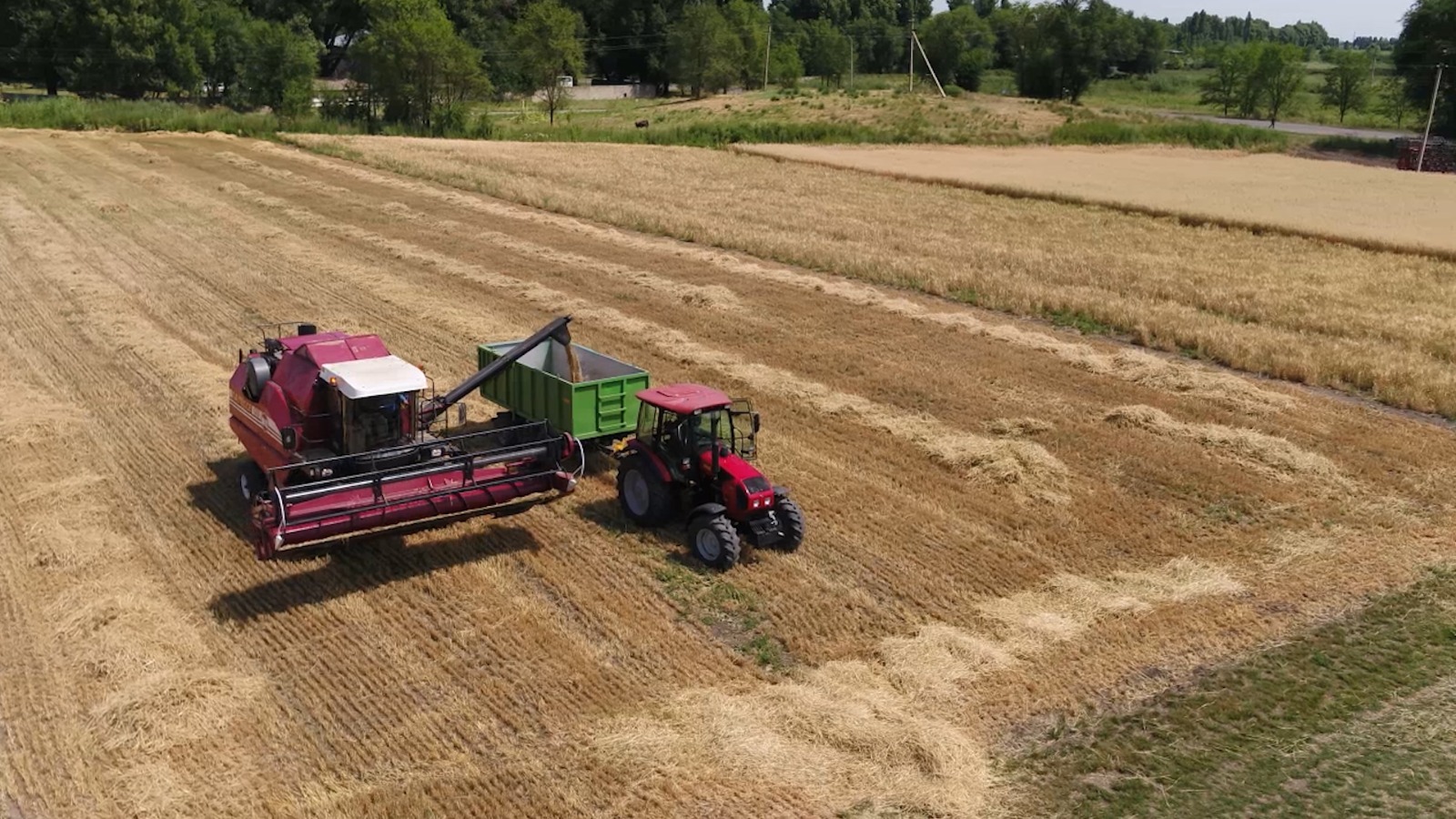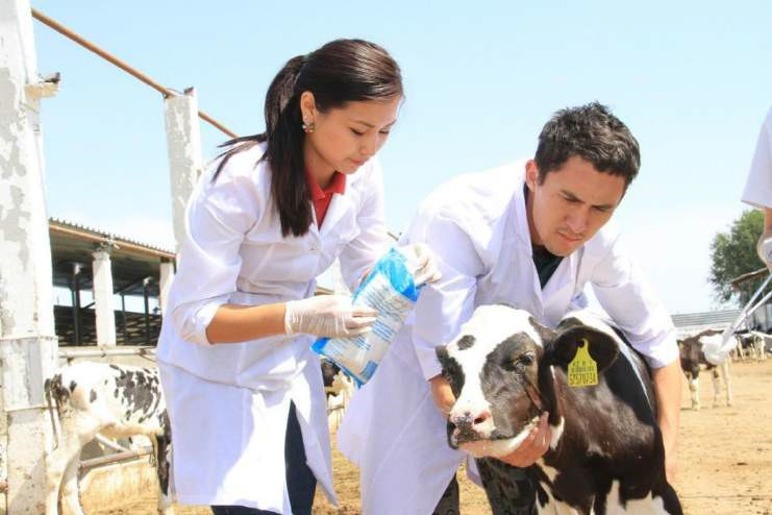The Kazakh State Agrarian Research University was established on the basis of two well-known universities in Kazakhstan - the Alma-Ata Zoo-Veterinary Institute and the Kazakh Agricultural Institute , which have their own history.
Alma-Ata Zoo-Veterinary Institute
In 1929, the Veterinary Institute was established by the Decree of the Council of People's Commissars of the RSFSR. It was the first agricultural and second higher educational institution in Kazakhstan. It was located in the building of the former Verny men's gymnasium (now Aiteke bi, 28). On the basis of the Veterinary Institute, the Alma-Ata Zoo-Veterinary Institute was created, which included the departments of zoology, botany, physics and mathematics, inorganic and analytical chemistry, and physiology of farm animals.
Prominent scientists made an invaluable contribution to the organization of the departments: Professor I.V. Saikovich (microbiology), Professor I.G. Vasilkov (botany), Professor V.V. Averburg (histology and embryology), Professor B.A. Dombrovsky (anatomy), a student of Academician I.P. Pavlov, Professor M.P. Kalmykov (animal physiology), who arrived with a group of teachers from Kiev, invited from Omsk, Professor N.L. Karavaev (inorganic and analytical chemistry), Professor V. A. Cler (zoology), Professor V.V. Kellerman (physics and mathematics) and many others.
Soon, on the basis of the decision of the Bureau of the Kazkraykom of the All-Union Communist Party of Bolsheviks, the Veterinary Institute was reorganized into the Veterinary and Zootechnical Institute. The first director of the Veterinary Institute was a microbiologist I. V. Saikovich , and later it was headed by L.M. Atayants (1930–1932), S. Argynshiev (1932–1933), M.T. Yunusov (1933 –1934), E.V. Baigaskin (1934–1936), A. F. Antipenko (1936–1937), A.Ya. Dzerzhinsky (1946–1951), F.M. Mukhamedgaliev (1951–1958), G.K. Konakbaev (1958–1963), M.A. Ermekov (1963–1972), Z.K. Kozhebekov (1972–1983) and K.S. Sabdenov (1983-1996) .
In 1933, the Institute was renamed the Alma-Ata Zoo-Veterinary Institute. In its formation and prosperity, the Kazakh intelligentsia also played an important role, taking an active part in raising the prestige of the university. Among its ranks were: a world-famous writer, Lenin Prize winner, academician of the Academy of Sciences of the Kazakh SSR M. O. Auezov , who taught Russian and Kazakh languages, professors A. A. Ermekov and Kh. N. Nurmukhamedov, associate professors M. D. Zholdybaev and T A. Akhmetov , lecturers M. Zh . Zhienkulov , S.B. Byasaliev , Kh.O. Omarov, K.D. Dilimbetov and others.
Members of the USSR Academy of Sciences, VASKHNIL and the Academy of Sciences of the KazSSR (RK) as academicians S.N. Vyshelessky , V.A. Balmont, D.A. Zykov, F.M. Mukhamedkaliev , N.U. Bazanova Z.K. Kozhebekov conducted lecturs and research at the institute, corresponding members M.A. Ermekov , A.K. Roslyakov, A.M. Murzamadiev, I.N. Nechaev, M.M. Toyshibekov , T.S. Saiduldin a well.
In 1979, for a major contribution to the training of specialists, the Alma-Ata Veterinary Institute was awarded the Order of the Red Banner of Labor.
Kazakh Agricultural Institute
The Kazakh Agricultural Institute was organized in 1930. It consisted of two faculties: field cultivation, fruit and vegetable.
The first graduation took place in 1933 - 78 people received higher education, including 51 agronomists and 27 horticultural growers. 20 out of 78 people who completed their studies were Kazakhs.
A great contribution to the formation and subsequent development of the institute was made by its leaders: directors O.K. Zhandosov (1930–1932), Kh.D. Churin (1932–1937), N.M. Beketov (1937–1939 ), S.S. Syzdykov (1939–1940), A.I. Sembaev (1940–1941), D.A. Andriyanov (1941–1943), A. Zhumatov (1943–1959) ), A.I. Dorofeev (1960–1961), E.B. Taibekov (1961–1963) and rectors Kh.A. Arystanbekov (1963–1981), T.T. Tazabekov (1981– 1985), B.P. Shah (1985–1992), E.Zh. Zhumabekov (1992–1996).
Kazakh Agricultural Institute became one of the largest and leading agricultural universities in the USSR. This is a great merit of the faculty of the Institute. The merits of academicians R.A. Eleshev, S.B. Baizakov, professors A.A. Auezov , A.K. Koishybaev, M.Zh. Sabirov, B.D. Dyusenov , Zh.K. Korgasbaev and others, who worked in different years as vice-rectors of the institute for their main activities.
In 1971, for a major contribution to the training of specialists for agriculture, the Kazakh Agricultural Institute was awarded the Order of the Red Banner of Labor.
Kazakh State Agrarian University
In 1996, on the basis of the two oldest universities in Kazakhstan - the Almaty Zoo-Veterinary Institute and the Kazakh Agricultural Institute, the Kazakh State Agrarian University was established, the rector of which was appointed Academician of the National Academy of Sciences of the Republic of Kazakhstan K.A. Sagadiev.
Kazakh State Agrarian University
On July 5, 2001, by the Decree of the President of the Republic of Kazakhstan N.A. Nazarbayev, the Kazakh State Agrarian University was given a special status, and the university became the Kazakh National Agrarian University. This, in turn, increased its image and authority, increased responsibility for the training of qualified specialists.
In 2001, the winner of the State Prize in the field of science and technology named after al-Farabi, academician T.I. Espolov was appointed rector of the university .
Kazakh State Agrarian University
On October 23, 2020, by the Decree of the Government, the university was awarded the status of the Kazakh National Agrarian Research University.
In 2022, Doctor of Agricultural Sciences, Professor, Academician of the National Academy of Sciences of the Republic of Kazakhstan A.K. Kurishbaev was appointed rector of the Kazakh National Agrarian University.
Corresponding to its status, the Kazakh National Agrarian Research University firmly follows the tradition: to improve the quality of training of agricultural specialists, using innovative and advanced methods in the educational process.
Systematic work is being carried out to achieve a world-class education, thanks to which the university entered the European educational space, joined the Bologna Declaration, concluded cooperation agreements with many foreign universities, etc. The university has switched to a three-level training of specialists: bachelor - master - doctor PhD, credit technology of education has been introduced. A Kazakh model of a research university has been developed on the example of KazNARU , which is recommended for the system of higher and postgraduate education of the Republic of Kazakhstan, as well as for the leading agricultural universities of the CIS.
Since 2001, the university began the process of integrating education, science and production. For this, the AgroDamu Agricultural Research and Production Consortium was created , which provides consulting services to rural entrepreneurs in 9 regions and 88 districts of the republic.
Also, the International Association "Agricultural Education " and the Small Academy were created, which carry out a continuous system of agricultural education.
In accordance with the Decree of the Government of the Republic of Kazakhstan No. 226 dated April 14, 2015, the Republican State Enterprise on the right of economic management "Kazakh National Agrarian University" was transferred from the jurisdiction of the Ministry of Education and Science to the Ministry of Agriculture of the Republic of Kazakhstan. In accordance with the Decree of the Government of the Republic of Kazakhstan dated August 22, 2015 No. 659, RSE " KazNAU " became part of the NAO "National Agrarian Scientific and Educational Center" under the Ministry of Agriculture of the Republic of Kazakhstan and reorganized into NAO with 100% state participation in the authorized capital. This made it possible for the university to gain academic freedom, move to autonomy, implement the principles of self-financing, using the mechanisms of public-private partnership.
The International Agrotechnological has been created Hub at the university, which mission is to search, attract and transfer the best innovative technologies and new knowledge to the agro-industrial complex. Agrohub currently includes: 4 research institutes, 9 research laboratories, 5 international research centers .
In 2019, laboratories for microclonal propagation of plants, a reference laboratory for milk and a Situation Center, as well as the Kazakh-Belarusian Agro-Engineering Innovation Center were created.
Scientific research of university scientists is aimed at ensuring food security in Kazakhstan.
At the International Research Center for Vaccinology of the University, together with the National Scientific Center for Highly Dangerous Infections, with the support of foreign partners - Ohio State University (USA) and the biotechnology company Vaxine (Australia), 2 vaccines against COVID-19 were created: NARUVAX-C19 and NARUVAX-C19 / Nano . They are included in the list of the World Health Organization as promising vaccine candidates against COVID-19.
In Kazakhstan-Netherlands Research Center together with Dutch Fruit Solutions company an intensive orchard according to Dutch technology was created. An agreement was signed with this company on the construction of a fruit storage facility.
A reference laboratory was opened at the university that analyzes the quality of milk and dairy products, where rural entrepreneurs can receive a certificate of quality for their products.
In order to consolidate the efforts of water scientists in Kazakhstan and Central Asia to solve the problems of effective water management, the International Research Center - Water Hub with 11 modern research laboratories was opened.
Currently, the university cooperates with 140 leading universities and scientific centers of the world. It is a member of 15 international associations and organizations for higher education and science:
- GCHERA - Global Consortium of Agricultural Universities and Science;
- Association of European Life Sciences Universities (ICA);
- Magna Charta of Universities Universitatum;
- Visegrad University Association ;
- International Forum of the IREG Observatory;
- Association of European Universities (EUA);
- Council of Rectors of Leading Agrarian Universities of the CIS Member States;
- ISEKI-Food Association - European association for the integration of scientific and engineering knowledge in the field of food products into the food chain;
- CASCADE - Consortium of Agricultural Universities of Central Asia and the South Caucasus (CASCADE);
- Association of Universities "Eurasia-Pacific Uninet " (Austria);
- Vetistanbul Group;
- United Nations Academic Impact (UNAI) Initiative;
- International network of universities ENTER NETWORK;
- Silk Road Universities Network (SUN);
- Silkroad Alliance for Agricultural Education, Research and Innovation (SRAERIA).
The university implements 11 double degree programs with leading partner universities in the USA, Europe, and the countries of the Pacific region. For example, with the Warsaw University of Natural Sciences (Poland), a double-degree master's program "Water Resources Management Using IT-Technologies" is being implemented.
In its innovative development, the university focuses on the experience of Wageningen Research University (the Netherlands), which is the number 1 university in the QS world ranking for agricultural specialties. In November 2019, during the trip of the Governmental Delegation of Kazakhstan headed by the Prime Minister of the Republic of Kazakhstan A.U. Mamin to the Kingdom of the Netherlands, a MoU was signed between the universities on the joint training of specialists in the field of agriculture. The Institute for Collaboration with the Wageningen University was established on the basis of KazNARU, where, starting from the 2020-2021 academic year, students are being trained in English in two educational programs: “Plant Science and Technology”, “Veterinary Food Safety and Technology”. The implementation of such educational programs will make it possible to train highly qualified world-class specialists who are competitive in the international arena, and to transfer the experience gained to other universities in the country.
Undergraduates, doctoral students, young scientists take an active part in scientific research. The Council of Young Scientists of KazNARU became the best Council of Young Scientists of the Foundation of the First President among the country's universities. According to the international information and analytical platform Web of Science, this year for the second time in a row the university won the independent award "Leader in the number of publications in journals Q1 and Q2 of the Web of Science Core Collection quartiles over the past 3 years among agricultural universities." Al-Farabi State Prize in the field of science and technology was awarded to 4 leading scientists, State scientific scholarships - 3, a grant from the Foundation of the First President - 1 young scientist of the university. This confirms the effectiveness of the school of young researchers built at the university.
At the XIV republican rally of youth labor groups " Zhasyl el" the university received the title of "The Best Educational Institution" (2007).
The university joined the League of Academic Integrity in order to improve the quality of education by introducing the principles of academic integrity and intolerance to its violations.
As a result of a 10-year transformation, on October 23, 2020, the Government Decree No. 707 was adopted on giving the university the status of a national research university and the “Development Program of the Kazakh National Agrarian Research University for 2020-2024” was approved. This imposes great responsibility and poses new challenges.
Currently, the Kazakh-Korean Research Center, established in 2021, is conducting trainings for managers and specialists involved in growing crops in greenhouses. "Smart greenhouse" was put into operation on the basis of the educational farm.
As a result of systematic work, the university has risen to a worthy place in various international and national rankings. Especially last year, making a big leap, the university ranked 481 in the QS World University Rankings.
On November 9, 2022, the founding president of Quacquarelli Symonds QS Nunzio Kvakvarelli and QS Regional Director for Eastern Europe and Central Asia Sergey Khristolyubov visited the Kazakh National Agrarian Research University. Nunzio Kvakvarelli gave a number of recommendations to improve the performance of KazNARU in the world ranking by attracting new foreign partner universities, as well as solving topical issues of science and technology.
Representatives of diplomatic missions of a number of countries, such as Canada, the USA, China, Israel, Hungary, the Kingdom of the Netherlands, Germany, Uzbekistan also visited KazNARU .
On April 18, 2023, an international conference was held on the topic: "Biodiversity and ecosystem services as an integral component of sustainable development." The conference was attended by Ambassador of the Federal Republic of Germany to the Republic of Kazakhstan Monika Iversen, Chairman of the Committee on Agrarian Issues of the Majilis of the Parliament of the Republic of Kazakhstan Egizbaev Serik Rakhmetollauly, Representative of the UN Department of Global Communications Vlastemil Samek, leading experts and scientists from Kazakhstan, Kyrgyzstan and China. Akylbek Kurishbaev proposed to create in Kazakhstan the National Bank of Plant and Animal Genetic Resources in order to ensure food security and sustainable development of agriculture. This idea was supported by the German side and at the moment the issues of financing the creation of a genetic bank are being worked out.
From April 20 to April 28, 2023, Bruno Anselm, professor at the AgroParisTech University (France), which ranks 3rd in Europe and 4th in the world in agriculture, forestry and bioeconomics, made an official visit to the Kazakh National Agrarian Research University.
The University implements educational programs in 56 undergraduate educational programs, 3 special higher education programs, 89 master's programs and 21 PhD doctoral programs. About 7 thousand people study at 6 faculties, including 26 departments, of which 449 undergraduates and 167 PhD students, which is 15%. The share of students on state educational grants is 56.8%.
The teaching staff involved in the training of personnel consists of 666 people, including: 7 academicians of the National Academy of Sciences of the Republic of Kazakhstan, 75 doctors of science and 221 candidates of science, 78 PhD doctors, 234 masters and 58 teachers with higher academic degrees. education. The proportion of lecturers with academic degrees and titles from the number of full-time lecturers is 55%.
Over the years of the existence of the educational institution, more than 150 thousand specialists has graduated from university who have made a worthy contribution to the development of agricultural production, education and science in the republic. Among them are 2 Heroes of the Soviet Union, 25 Heroes of Socialist Labor, 70 deputies of the Supreme Soviet of the USSR and the Kazakh SSR, the Parliament of the Republic of Kazakhstan, honored workers and figures of the Republic of Kazakhstan, ministers, akims of regions and prominent civil servants, over 11,000 doctors and candidates of science.




